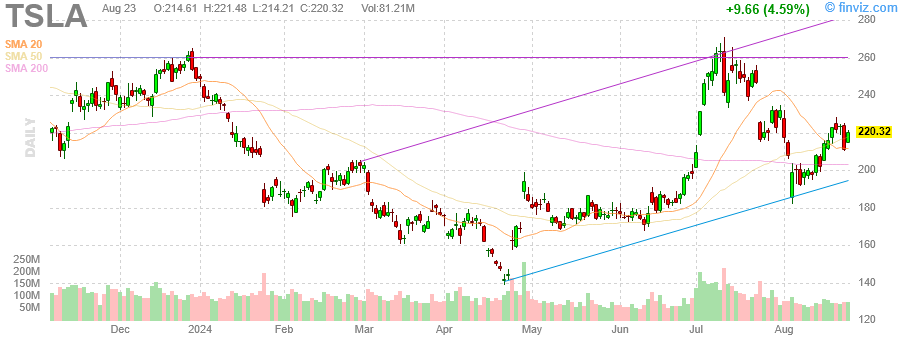And if I ever find myself on Mr. Ellison's yacht I will let him know it.*
From Barron's, December 17, updated 4:27 pm EST:
Santa delivered some coal early for investors in the power-generation and technology company GE Vernova GEV -10.50%.
GE Vernova stock was off 7.8% in midday Wednesday trading, the worst-performing stock in the S&P 500. The S&P 500 and Dow Jones Industrial Average were down 0.8% and 0.2%, respectively. It was
AI jitters look like the reason for the steep decline. A chip start-up named Mystic has created worries similar to the DeepSeek situation encountered earlier this year. That is apparently all it took to catalyze the selloff.
The company raised $125 million in a new round of funding. While that is a tiny amount of money relative to the sums being spent on AI, Mythic is trying to design AI chips that use less power.
Rising demand for electricity, thanks to the buildout of power-hungry AI data centers, is the biggest reason for increased optimism in GE Vernova stock.
AI has been great for GE Vernova stock, which has more than doubled this year. However, shares are vulnerable to any AI tantrums the market might have.
The Mystic situation is a little like the DeepSeek problem Nvidia and the AI sector faced in January. At that time, a Chinese AI model was apparently producing good results with cheaper chips that use less power....
....MUCH MORE
I've only seen Ellison's boat in pictures but I'm thinking the lady attorney's could pinpoint its exact location. They are yacht stalkers. I've mentioned them in passing over the years, here's a hit from 2014 - "Natural Gas Retreats After Gains; CME Raises Margins for Trading"
You've probably noticed the dearth of posts on natty.
There's a reason for that, we don't want to lose any readers. The market is so whippy right now that I could be writing "Buy-Sell-Hold", "Short-Flat-Long" all day long and never get any work done. Plus, if anyone missed a single post they'd get wrong-footed, possibly lose money, get crabby and have to talk to the lady attorneys whose mellifluous voices may or may not bring them back into the readership.
And then the lady attorneys get mad at me because they should really be in Monaco for the end of the Primo Cup - Trophee Credit Suisse regatta and no they don't want to go to the Florida State Championship instead and I've wrecked their whole season and...arrrgh.
Monaco, Nov. 01, 2018 (GLOBE NEWSWIRE) -- GasLog Ltd. and its subsidiaries (“GasLog”, “Group” or “Company”) (NYSE: GLOG), an international owner, operator and manager of liquefied natural gas (“LNG”) carriers, today reported its financial results for the quarter ended September 30, 2018.
For God's sake do not mention the dateline on this release to the Lady attorneys.Or 2010: Time to Get Corporations and Unions Out of Politics
They missed last month's St. Tropez regatta and will immediately glom onto Monaco and start thinking of the Primo Cup – Trophée Credit Suisse and the houly will jump as they get new hobnobbing duds and...ugggh....
*****
....I checked with the Lady attorneys, they said the constitutional basis for overturning Santa Clara County is sound and that other than the little matter of taking on GE and the SEIU, Boeing and AFSCME and Google and the AFT all at the same time they saw no problems.
Then they went back to discussing the merits of Tuscany v. Monaco and whether the Saint-Tropez regatta is really worth the effort.
And Mr. Ellison? He has his own set of problems:
Larry Ellison’s $490 million megayacht ‘Rising Sun’ was so enormous that it could only be docked next to oil tankers and cruise ships. The 454-foot vessel felt like walking in an empty mall, so the eccentric billionaire sold it and bought a smaller $160 million superyacht
—LuxuryLaunches, February 2, 2025
God forbid having to park next to a cruise ship.
Also:
November 22 - "Cost of insuring against Oracle debt default spikes as September seems a long time ago" (ORCL)
Mr. Ellison may be past his sell-by date.
He's 81, has been on the Forbes 400 richest Americans list forever (since at least 1997), was briefly the richest person in the world, and has been living in his self-created bubble since at least 1977.
December 10 - "Oracle Shares Tumble as AI Spending Outruns Returns"
December 12 - "Oracle delays some of its OpenAI data centers from 2027 to 2028 - report" (ORCL)
December 12 - "Oracle denies report on OpenAI data center delays"
December 17 - "Oracle Stock Falls After Report on AI Data-Center Funding Talks" (ORCL; NVDA; GEV; SOXX)






